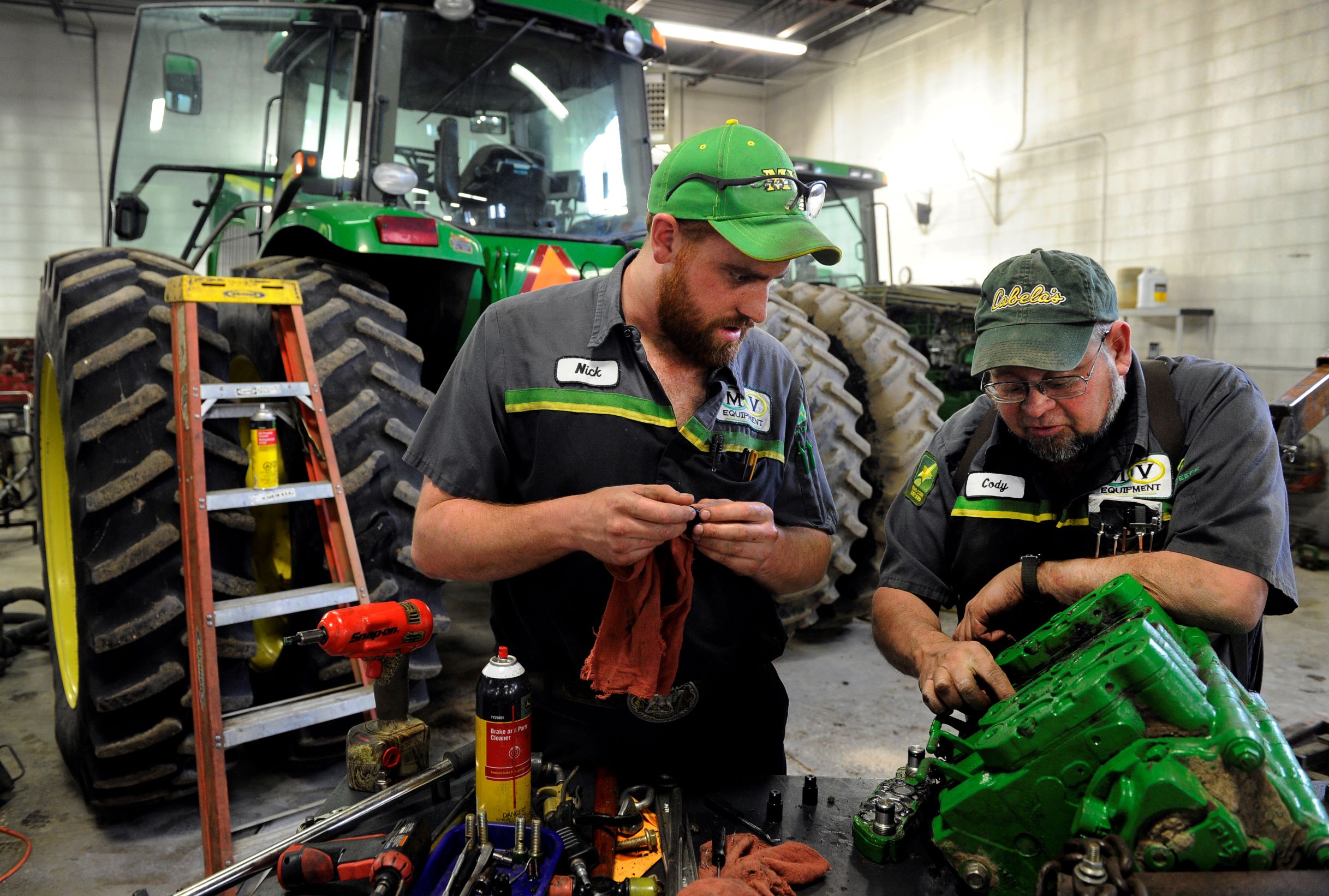Fix Your John Deere Tractors

Common Issues with John Deere Tractors
Before we dive into fixing your John Deere tractors, let's take a look at some of the common issues you may encounter:
- Engine won't start or runs poorly
- Hydraulic system failure
- Electrical problems
- Transmission issues
Engine Won't Start or Runs Poorly
If your engine won't start or runs poorly, the first thing you should check is the battery. Check the battery terminals and ensure they are clean and free of corrosion. If the battery is fine, check the fuel system and make sure the fuel is clean and the filters are not clogged. If you still can't find the issue, it may be a problem with the ignition system or timing.
Hydraulic System Failure
If you are experiencing hydraulic system failure, check the hydraulic fluid levels and make sure they are at the correct level. If the fluid levels are fine, check the hydraulic filters and ensure they are not clogged. If the issue persists, it may be a problem with the hydraulic pump or the control valve.
Electrical Problems
If you are experiencing electrical problems, the first thing you should check is the battery. Ensure the battery terminals are clean and free of corrosion. Check the fuses and wiring for any signs of damage. If the issue persists, it may be a problem with the alternator or starter.
Transmission Issues
If you are experiencing transmission issues, check the transmission fluid levels and ensure they are at the correct level. If the fluid levels are fine, check the transmission filters and ensure they are not clogged. If the issue persists, it may be a problem with the clutch or the transmission pump.
Steps to Fix Your John Deere Tractors
Now that we've covered the common issues you may encounter, let's dive into the steps to fix your John Deere tractors:
Step 1: Identify the Issue
The first step to fixing your John Deere tractor is to identify the issue. Use the list of common issues above to help diagnose the problem.
Step 2: Gather the Necessary Tools and Parts
Once you've identified the issue, gather the necessary tools and parts to fix the problem. Refer to your John Deere tractor manual for a list of required tools and parts.
Step 3: Make the Repair
Follow the instructions in your John Deere tractor manual to make the necessary repair. If you are not comfortable making the repair yourself, consult a certified John Deere mechanic.
Step 4: Test the Tractor
After making the repair, test your John Deere tractor to ensure the issue has been resolved. Take your tractor for a test drive and put it through its paces to ensure it is running smoothly.
Pros and Cons of John Deere Tractors
Pros:
- Reliable
- Durable
- Easy to maintain
- Wide range of models available
Cons:
- Expensive
- May require specialized maintenance
- Not suitable for small farms or gardens
Conclusion
Fixing your John Deere tractor may seem daunting, but with the right tools and knowledge, it can be a straightforward process. Remember to always follow the instructions in your John Deere tractor manual and consult a certified mechanic if you are not comfortable making the repair yourself. By keeping your tractor in good working order, you can ensure it will provide years of reliable service.
FAQs
Q: How often should I service my John Deere tractor?
A: It is recommended that you service your John Deere tractor every 200 hours of use or annually, whichever comes first.
Q: Can I use aftermarket parts on my John Deere tractor?
A: While aftermarket parts may be cheaper, it is recommended that you use genuine John Deere parts to ensure the best performance and durability.
Q: What type of oil should I use in my John Deere tractor?
A: Refer to your John Deere tractor manual for the recommended oil type and viscosity.
Q: How long do John Deere tractors last?
A: With proper maintenance, John Deere tractors can last for decades.
